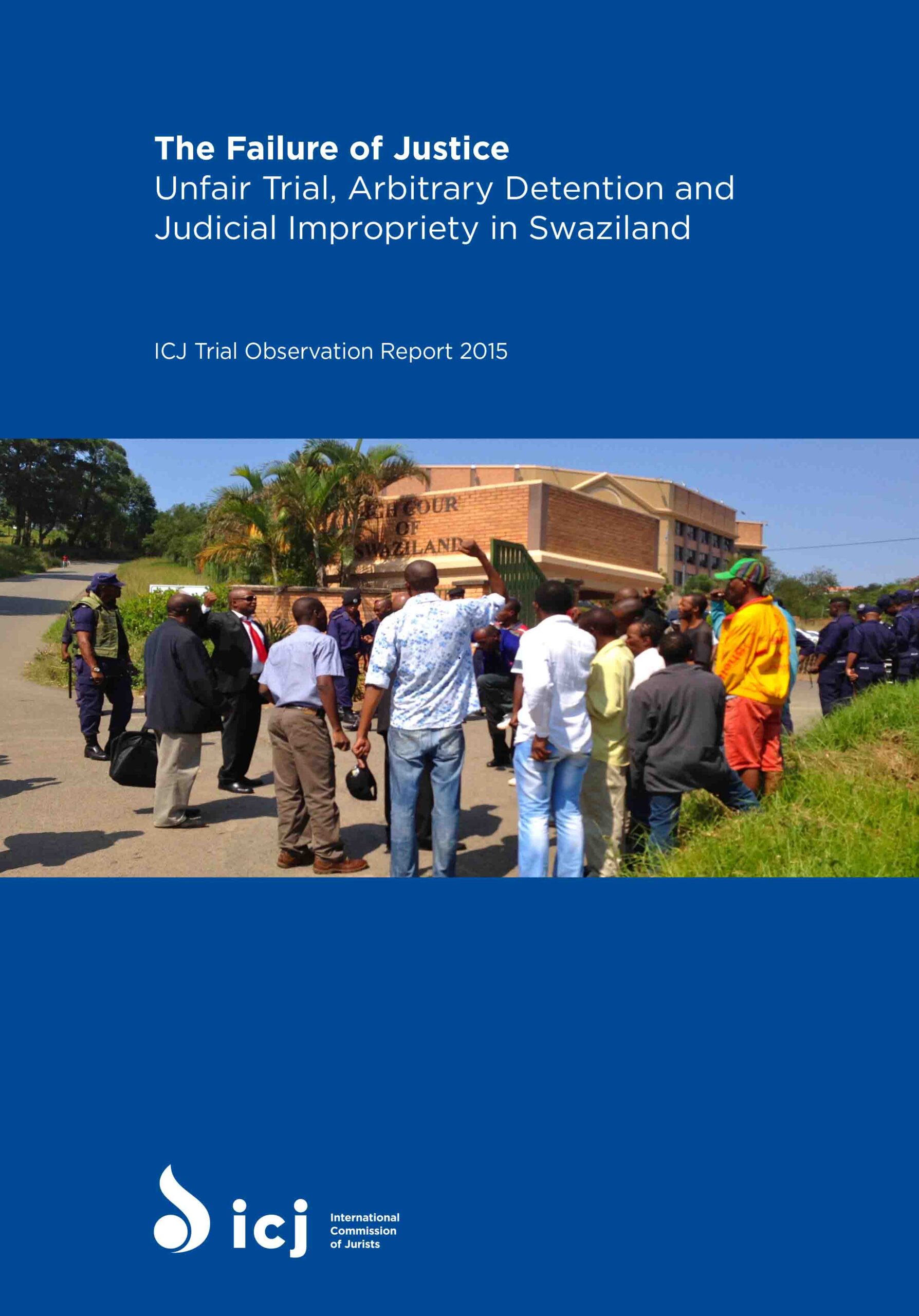The ICJ today released its trial observation report of the trial in 2014 before the High Court in Mbabane, Swaziland, in The King v The Nation Magazine, Bheki Makhubu, Swaziland Independent Publishers (Pty) Ltd, and Thulani Maseko.
In February 2014, Thulani Maseko and Bheki Makhubu wrote an article entitled “Speaking my mind”, published in the Nation Magazine, which is owned by Swaziland Independent Publishers (Pty) Ltd. In March 2014, Thulani Maseko wrote a second article entitled ‘Where the law has no place’, also published in the Nation Magazine.
The articles criticized the manner in which the former Chief Justice of Swaziland, Justice Michael Ramodibedi, had handled an allegation of contempt of court against Bansthana Vincent Gwebu in January 2014.
The charges against the four defendants arose from the fact that the articles were published before the case against Bansthana Vincent Gwebu had been disposed of.
The defendants were accused of unlawfully and intentionally issuing statements contemptuous of the court.
The ICJ’s report The Failure of Justice: Unfair Trial, Arbitrary Detention and Judicial Impropriety in Swaziland concludes that the arrest and detention, trial, conviction and sentencing of the defendants involved multiple violations of the Constitution of the Kingdom of Swaziland, the African Charter on Human and Peoples’ Rights, the Principles and Guidelines on the Right to a Fair Trial in Africa and the International Covenant on Civil and Political Rights.
Thulani Maseko and Bheki Makhubu were subjected to unlawful and arbitrary arrest and detention, including violation of their right to legal counsel and their right to a public hearing with respect to their initial appearance before the Chief Justice in his chambers.
All aspects of the trial, including pre-trial proceedings before the Chief Justice and the trial judge, involved violation of the right of all defendants to a hearing by an impartial tribunal.
The defendants were improperly convicted, in violation of the right to freedom of expression. Even had the convictions been proper, they were sentenced to disproportionately severe sentences, particularly in the case of the sentences of two years’ imprisonment of Thulani Maseko and Bheki Makhubu.
Although the improper convictions and disproportionate sentences have been ‘self-corrected’, through the Supreme Court of Swaziland’s unopposed setting aside of convictions and sentences, it remains the case that Thulani Maseko and Bheki Makhubu were arbitrarily deprived of their liberty, including because this resulted from the legitimate exercise of their freedom of expression.
Swaziland-Maseko Trial Observation-Publications-Trial observation report-2015-ENG (download full report, in PDF)

